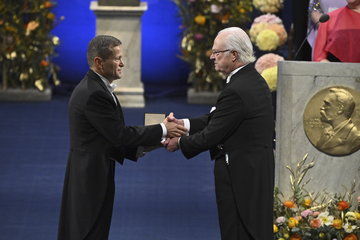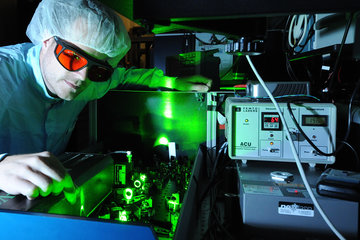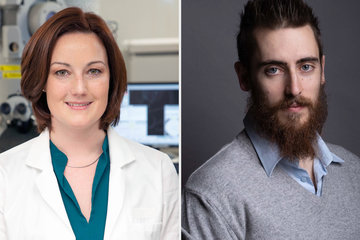Max Planck Society and Humboldt Foundation to present new joint research award from 2018
The Max Planck-Humboldt Research Award to be endowed with 1.5 million euros
The award is intended to attract outstanding and particularly innovative international scientists to German universities and research institutions for research residencies of limited time periods. The award winners will enjoy freedom and flexibility in organising their scientific activities and networking in Germany. The award, which is funded by the German Federal Ministry of Education and Research, replaces the Max Planck Research Award, which was previously bestowed annually to two researchers by the Humboldt Foundation and the MPG.
For the new Max Planck-Humboldt Research Award, a nominations committee from the Max Planck Society will identify three international candidates who have a strong interest in a research residency, which can be organized flexibly, at German institutions, preferably universities. A selection committee, which will include the Presidents of the Humboldt Foundation and the MPG, will then select the winner from the list of nominees. The award money of 1.5 million euros will enable the winner to carry out innovative and high-risk research, and to develop new research formats. This distinction is to be supplemented by an additional sum of 80,000 euros in personal award funding. Self nominations are not foreseen.
“With the new Max Planck-Humboldt Research Award, we are embarking on a new chapter in terms of approaching and acquiring promising international researchers for the German science system and in terms of the flexibility we offer regarding the implementation of the research and its potential content,” says Federal Minister of Education and Research Johanna Wanka. “We will be targeting young, highly-talented scientists who can be expected to carry out pioneering research. With this award, we are establishing an attractive new framework for outstanding research in Germany.”
“The Max Planck-Humboldt Research Award will enable us to attract outstanding, international scientists who we have not been able to reach up to now,” says Helmut Schwarz, President of the Alexander von Humboldt Foundation. “A number of top scientists would not like to move to Germany permanently for professional or private reasons. However, many of them would be very interested in the possibility of spending a limited and flexibly organized research residency here,” explains Schwarz.
Martin Stratmann, President of the Max Planck Society, stresses: “The research award already jointly presented by the Alexander von Humboldt Foundation and the Max Planck Society is held in very high regard at international level. We are now building on this renown to bring outstanding researchers to Germany for shorter periods. In this way, they can become acquainted with the German science system and provide important impetus for Germany as a research location. The award demonstrates yet again that international cooperation is crucial to the success of science.”
The annual award will be presented alternatively in the fields of natural and engineering sciences, life sciences, and human sciences.
Alexander von Humboldt Foundation
The Humboldt Foundation enables over 2,000 researchers from all over the world to spend time working in Germany every year. The Foundation has a network of over 28,000 Humboldtians working in all fields and disciplines in over 140 countries – including 54 Nobel laureates.
Max Planck Society
Germany’s leading organization for basic research operates 84 institutes and research facilities in the natural, life and human sciences. Since the establishment of the Max Planck Society in 1948, 18 Nobel laureates have emerged from the ranks of its scientists.











